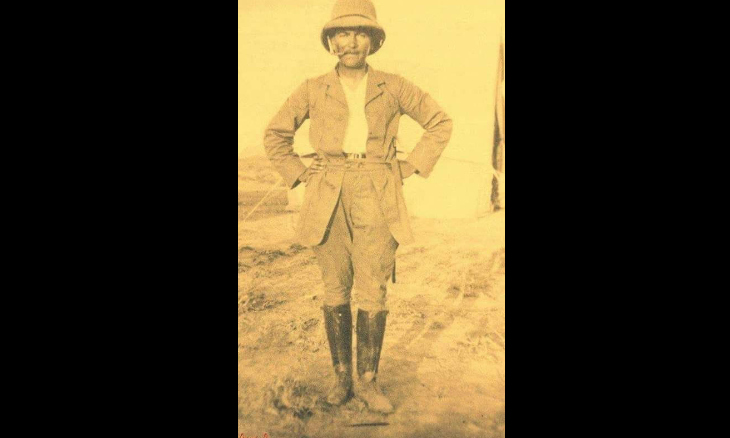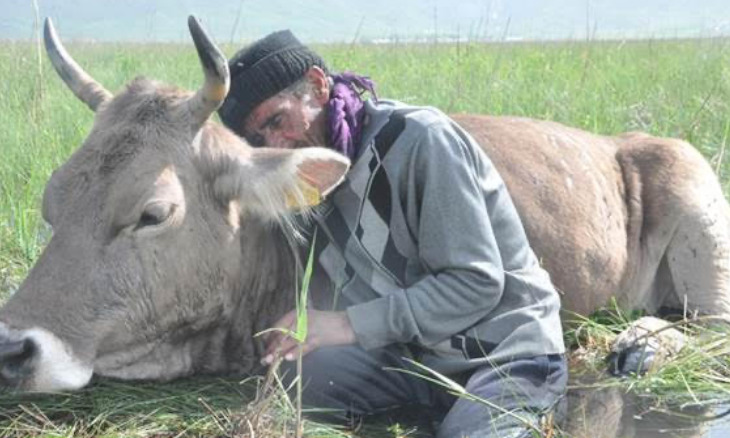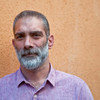Turks and Kurds as 'cowboys vs. natives'
Turks and Kurds are not exotic fruits that grow in faraway lands. As citizens of this country, namely the Republic of Turkey, they yearn for equality, justice for all, state of law, plurality, agency, effective administration through decentralization, secularism, better education and economy for their children, security.
Let’s assume that you are a –for some obscure reason an utterly uninformed- foreign diplomat arriving in Ankara. You have some vague knowledge about Turkey’s history, a rudimentary mastery of the language and with a political baggage acquired from your first hand witnessing of ethno-sectarian conflict that you hauled from your previous posting which you hurriedly left to have your kind self parachuted to Ankara skies.
First, the joke is already on you because not Istanbul but Ankara is the capital of Turkey and you will have to deal with that during your tour of duty, so most welcome. Then, I would humbly suggest to you as a well-wishing friend that your first task should not be to get yourself totally immersed as part of your hands-on training but to take a deep breath and lean back in your chair to get your essentials straight first. Throw the newspapers straight to the bin under your desk and reach for your embassy’s library.
Or else, in no time you will find yourself angrily cabling memos to your capital about the “pro-Kurdish HDP”, the “Marxist guerilla organization PKK fighting the Turks to establish an independent Kurdish state”, “Kurds living in Southeastern Turkey”, “Kurds being the largest nation in the world without a state”, “Kurds being massacred by the Ottoman Empire and the Republic of Turkey alongside other minorities like the Armenians” etc. Well you know the drill already.
History, identity, geography, politics, the characteristics of the HDP, concepts of “democracy and republic” will all constitute the various angles of the kaleidoscope that you will turning around in your hands. But hey, don’t you worry my imaginary diplomat friend: By all the means you are not alone, not the least bit. You want to know why? Well, simply because as the renowned historian Led Zeppelin once succinctly explained, we too all have “been dazed and confused for so long it's not true.” The process of figuring Turkey out takes a life time for the interested and the initiated generally passes away before being able her/his thoughts in proper order. Yet this shouldn’t stop one from asking questions.

Here are some titbit suggestions as for starters: “Bey of all Turk(men)s” was not among the numerous titles held by the Ottoman sultan but “Roman Emperor” was -after the conquest of Istanbul in 1453. There are more Albanians, Bosnians, Abhkaz/Circassians living in Turkey then these countries of origin respectively. As Mehmet The Conqueror destroyed the Turkmen Akkoyunlu dynasty and had the Turkmens in the Taurus Mountains massacred so did his grandson Selim The Grim by destroying the Turkmen Safavid dynasty and having the mostly Alawite Turkmens massacred in Anatolia. Anatolian peoples’ DNA would have remained mostly intact for some 3000 years according to some scientific studies but it also a fact that the population of the republic of Turkey was less than 10 million at the inception in early 1920’s, whereas now almost a 100 years later it is over 80 million.
Atatürk was himself an Ottoman general who spent most of his lifetime actively taking part in war at the Tripolitania, Palestine and Dardanelles fronts. He was the culmination of an almost two hundred years reform effort within the ruling elites of the Ottoman Empire and reigned during a particularly revolutionary period of the early twentieth history. The first republican constitution of 1921 was based on two founding entities: Turks and Kurds. Some even claim that this was the convenient union of those who were the instigators of “the original sin.” The largest Kurdish city in the world is neither Diyarbakır/Amed nor Erbil but it is Istanbul which is home to almost 3 million Kurds. Even during the harshest scorched earth tactics of the 1990’s Kurds did not opt to exile themselves to Southern Kurdistan but chose to move towrds the west either in Turkey or in Europe.
Down here we couldn’t even managed yet to write a scholarly biography of the founder of our republic Kemal Atatürk whose reprimanding ice blue gaze is on us from all the walls and the town squares. We don’t have an authoritative study of the PKK whose first armed attack dates way back to 1984. We couldn’t face the truth of the Armenian Genocide. We pretend we are number one and that there is not a single reason to worry about. Ergo, I wish you all the best in your endeavours in our beloved country and hope you will thoroughly enjoy the legendary Turkish/Kurdish hospitality during your stay.

Falih Rıfkı Atay in his seminal memoir titled “Mount Olive” about his experience on the Palestine front during the World War 1 writes that “the Ottoman Empire was a dairy cow with his enormous body laid down from Thrace towards Erzurum while its udders are in the mouth of the colonies and the nationalities, with its milk mixed with blood being sucked away.” If one dares to draw a comparison with that yesteryear’s “dairy cow” metaphor and create an analogy for our time, to my mind Kurds’ main stance towards the Republic of Turkey can be best imagined as Mr. Atasoy’s (see pic.) here mentioned.
One thing is sure though. Turks and Kurds are not exotic fruits that grow in faraway lands. As citizens of this country, namely the Republic of Turkey, they yearn for equality, justice for all, state of law, plurality, agency, effective administration through decentralization, secularism, better education and economy for their children, security. Their faces are turned towards the West whether that “West” likes it or not. We are stuck in this together and we fill find a way forward together. We need to ask new questions to ourselves and come up with new answers to old questions. Please do not pass judgment on us but try to understand us. Thank you and good luck.

